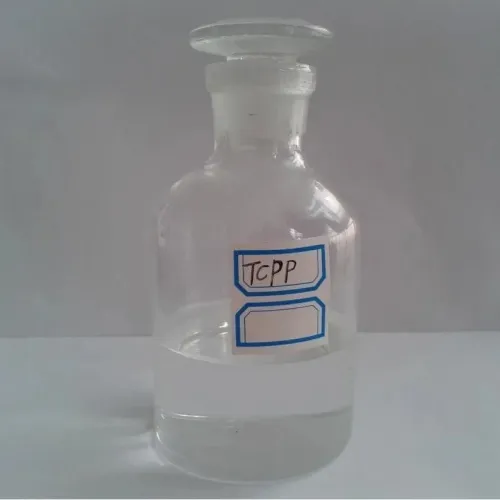Warning: Undefined array key "title" in /home/www/wwwroot/HTML/www.exportstart.com/wp-content/themes/1198/header.php on line 6
Warning: Undefined array key "file" in /home/www/wwwroot/HTML/www.exportstart.com/wp-content/themes/1198/header.php on line 7
Warning: Undefined array key "title" in /home/www/wwwroot/HTML/www.exportstart.com/wp-content/themes/1198/header.php on line 7
Warning: Undefined array key "title" in /home/www/wwwroot/HTML/www.exportstart.com/wp-content/themes/1198/header.php on line 7
Hebei Yize Trade Center Co., LTD.!
- Afrikaans
- Albanian
- Amharic
- Arabic
- Armenian
- Azerbaijani
- Basque
- Belarusian
- Bengali
- Bosnian
- Bulgarian
- Catalan
- Cebuano
- China
- China (Taiwan)
- Corsican
- Croatian
- Czech
- Danish
- Dutch
- English
- Esperanto
- Estonian
- Finnish
- French
- Frisian
- Galician
- Georgian
- German
- Greek
- Gujarati
- Haitian Creole
- hausa
- hawaiian
- Hebrew
- Hindi
- Miao
- Hungarian
- Icelandic
- igbo
- Indonesian
- irish
- Italian
- Japanese
- Javanese
- Kannada
- kazakh
- Khmer
- Rwandese
- Korean
- Kurdish
- Kyrgyz
- Lao
- Latin
- Latvian
- Lithuanian
- Luxembourgish
- Macedonian
- Malgashi
- Malay
- Malayalam
- Maltese
- Maori
- Marathi
- Mongolian
- Myanmar
- Nepali
- Norwegian
- Norwegian
- Occitan
- Pashto
- Persian
- Polish
- Portuguese
- Punjabi
- Romanian
- Russian
- Samoan
- Scottish Gaelic
- Serbian
- Sesotho
- Shona
- Sindhi
- Sinhala
- Slovak
- Slovenian
- Somali
- Spanish
- Sundanese
- Swahili
- Swedish
- Tagalog
- Tajik
- Tamil
- Tatar
- Telugu
- Thai
- Turkish
- Turkmen
- Ukrainian
- Urdu
- Uighur
- Uzbek
- Vietnamese
- Welsh
- Bantu
- Yiddish
- Yoruba
- Zulu
Jul . 10, 2024 10:47 Back to list
Is propylene glycol safe for use in products?
Propylene glycol is a synthetic organic compound that is widely used in various products such as food, cosmetics, and pharmaceuticals. It is commonly used as a solvent, humectant, and preservative in these products due to its ability to retain moisture, prevent spoilage, and enhance the texture of the finished product.
One of the most common concerns surrounding propylene glycol is its safety for human consumption. The US Food and Drug Administration (FDA) has classified propylene glycol as generally recognized as safe (GRAS) when used in food, which means that it is considered safe for consumption at levels approved by the FDA.
However, some people may still have concerns about the potential health risks of propylene glycol. One of the main risks associated with propylene glycol is its potential to cause skin irritation and allergic reactions in some individuals. This is more likely to occur in individuals with sensitive skin or those who are allergic to other chemicals commonly found in consumer products.
In addition, there have been reports of propylene glycol toxicity in cases of high exposure, such as accidental ingestion in large amounts

propylene glycol is it safe. Symptoms of propylene glycol toxicity may include dizziness, headaches, and nausea. However, it is important to note that such cases are rare and usually occur in occupational settings where individuals are exposed to high concentrations of propylene glycol for extended periods. Overall, propylene glycol is considered safe for use in consumer products when used in accordance with regulations and guidelines set by regulatory agencies such as the FDA. The safety of propylene glycol has been extensively studied, and it has been found to be safe for use in a wide range of products. In conclusion, propylene glycol is a safe and effective ingredient that is commonly used in consumer products. While there may be some concerns about potential risks associated with propylene glycol, these are generally minimal and can be mitigated by following proper safety guidelines. As with any chemical compound, it is important to use propylene glycol in moderation and as intended to ensure its safety and efficacy.

propylene glycol is it safe. Symptoms of propylene glycol toxicity may include dizziness, headaches, and nausea. However, it is important to note that such cases are rare and usually occur in occupational settings where individuals are exposed to high concentrations of propylene glycol for extended periods. Overall, propylene glycol is considered safe for use in consumer products when used in accordance with regulations and guidelines set by regulatory agencies such as the FDA. The safety of propylene glycol has been extensively studied, and it has been found to be safe for use in a wide range of products. In conclusion, propylene glycol is a safe and effective ingredient that is commonly used in consumer products. While there may be some concerns about potential risks associated with propylene glycol, these are generally minimal and can be mitigated by following proper safety guidelines. As with any chemical compound, it is important to use propylene glycol in moderation and as intended to ensure its safety and efficacy.
Latest news
-
Certifications for Vegetarian and Xanthan Gum Vegetarian
NewsJun.17,2025
-
Sustainability Trends Reshaping the SLES N70 Market
NewsJun.17,2025
-
Propylene Glycol Use in Vaccines: Balancing Function and Perception
NewsJun.17,2025
-
Petroleum Jelly in Skincare: Balancing Benefits and Backlash
NewsJun.17,2025
-
Energy Price Volatility and Ripple Effect on Caprolactam Markets
NewsJun.17,2025
-
Spectroscopic Techniques for Adipic Acid Molecular Weight
NewsJun.17,2025

